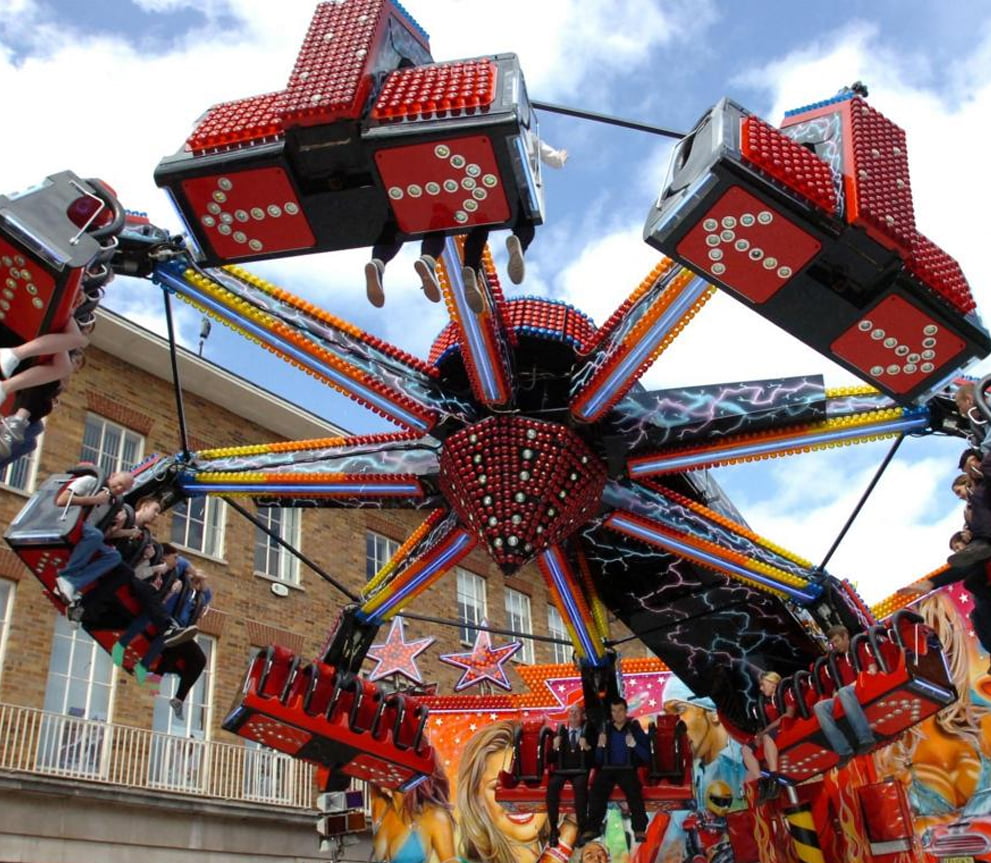Hereford's
May Fair
In every year, the May Fair is held on the Tuesday after the first Monday in May and on the next two days in such places as the council may designate (including streets in what otherwise would amount to an obstruction of the highway), as set out in law.
The current power under which this is done is Sections 4 to 6 of the Hereford City Council Act 1985, but there is an interesting historical background to this. The fair is also known as St. Ethelbert’s Fair or the Nine Days Fair ,and until 1838 its rights were vested in the Lord Bishop of Hereford. A local Act of Parliament at that time transferred the rights to the council and reduced the length of the fair’s duration as ‘it would greatly tend to the Advantage of the City and to the Improvement of the Morals of the Inhabitants thereof.’


A book written in the early 1900s disagrees with this and states that the fair ‘has degenerated into a three-day revelry which the authorities are not strong enough to remove because of the interests of the brewers and publicans are supreme or thought to be supreme in the Council Charter. All candidates for a seat in the council who were supposed to be in favour of its abolition or removal to another site have ignominiously failed at the polls.’
For the privilege of holding the fair, the 1838 Act provides that the council pay twelve and a half bushels of the best wheat or the equivalent in monetary terms, annually to the Bishop of Hereford. Although the 1838 Act was repealed by the Hereford Improvement Act 1854, the right to hold the fair and the Lord Bishop’s right to compensation were preserved. While this payment was formally commuted in 1971, the fair is still opened with the colourful and traditional ceremony of the weighing of the wheat.
Successive Bishops have continued to show an interest in the fair and to participate in its activities. At the time the 1985 Act was presented to Parliament, an offer to show their Lordships a photograph of the then incumbent (described as ‘a member of this most noble House’) on the dodgems and helter-skelter were gratefully accepted. The committee chairman stated ‘we must see these’ which he and his colleagues did with much relish and amusement.
At the House of Lords hearing, letters in support were submitted from both the Showmen’s Guild, who in practice run the fair, and the Chief Superintendent of the West Mercia Police giving their backing for its continuance. Any moves to adjust dates or the fair’s location would, therefore, need to be the subject of consultation with both such bodies. The principle of the right to hold the fair could only be the subject of appropriate legislation.


